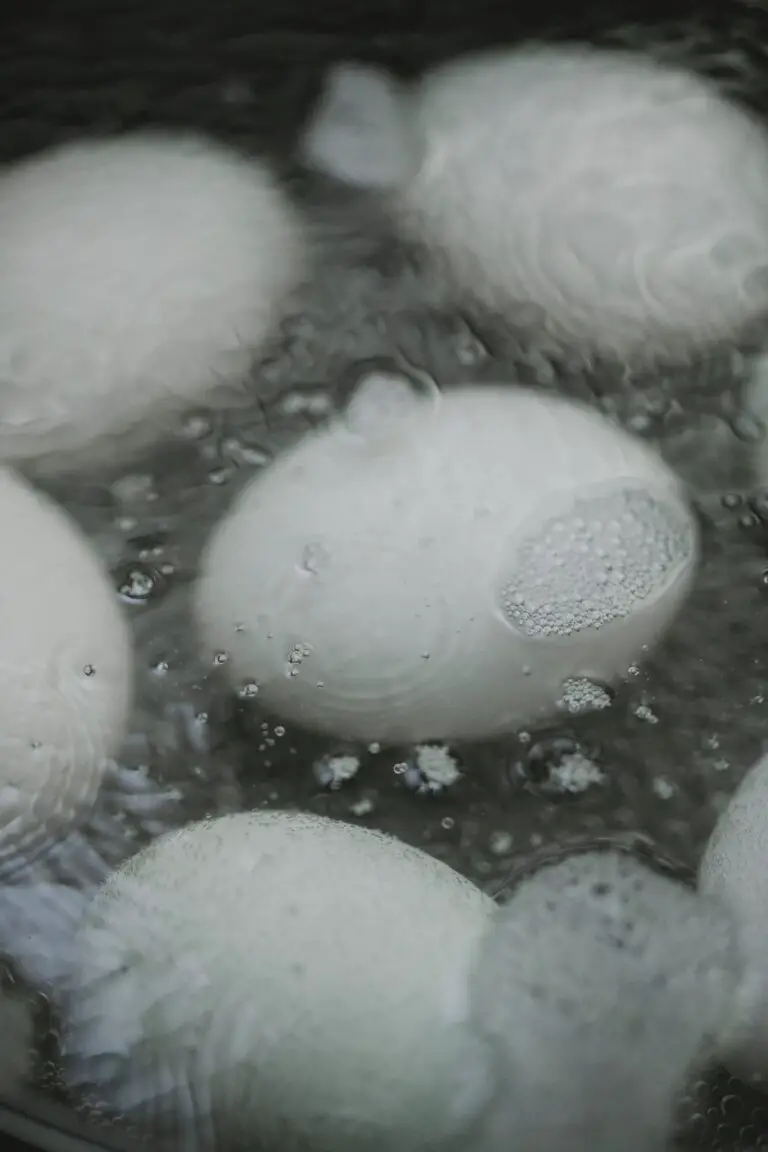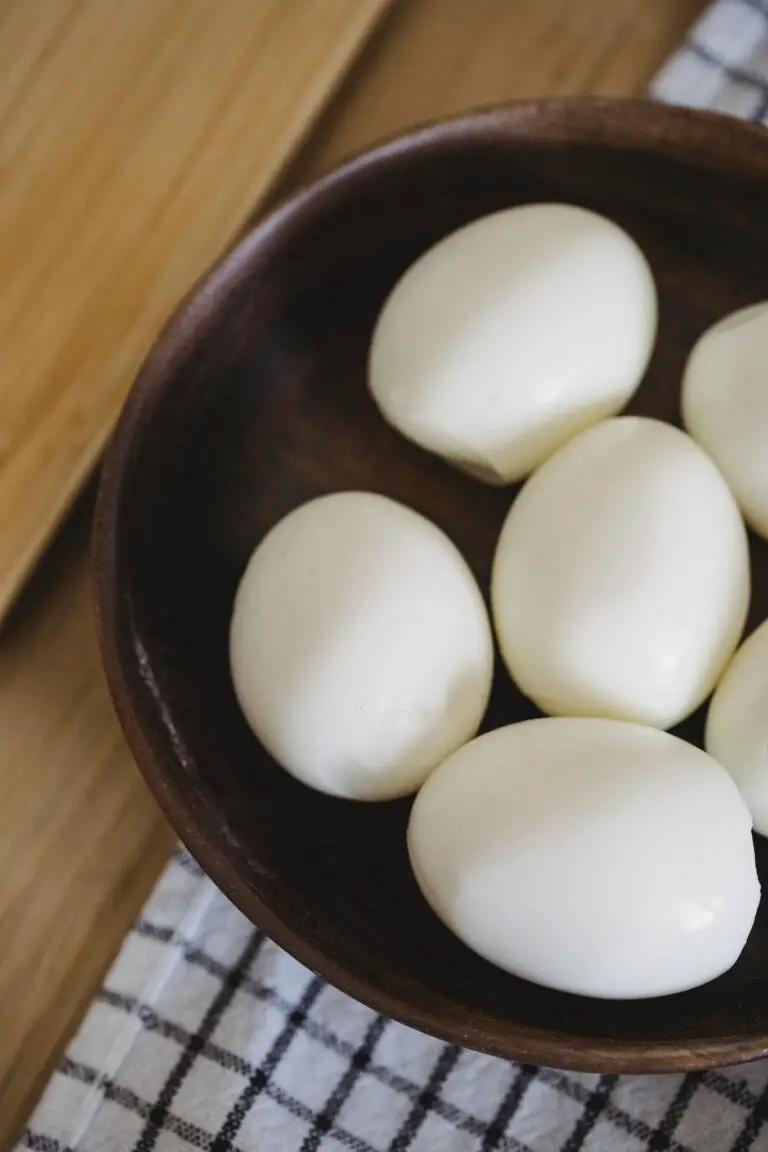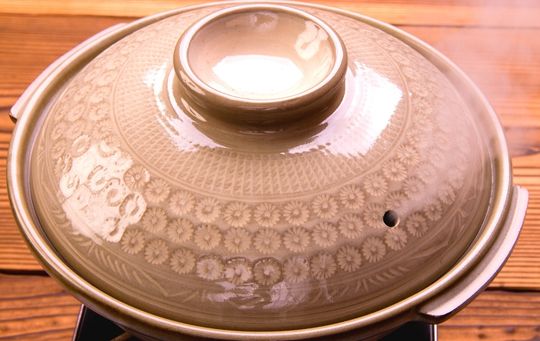What Happens When Eggs Freeze (Dec 2023)

Eggs are a versatile and essential ingredient in many recipes, from baking delicious cakes to whipping up a hearty breakfast scramble. However, have you ever wondered what happens when eggs freeze? Freezing eggs can be a convenient way to extend their shelf life, but it also comes with some important considerations.
What Happens When Eggs Freeze? When eggs freeze, the water inside them expands, potentially causing the eggshell to crack or weaken. This expansion can also lead to changes in the texture of the yolk and egg white. While frozen eggs can still be used in various recipes, their altered texture may not be ideal for dishes that rely on the distinct characteristics of fresh eggs.

What Happens When Eggs Freeze?
When eggs freeze, the water content within them expands as it turns into ice, which can lead to structural changes and challenges. The eggshell, being semi-permeable, allows moisture to escape and air to enter gradually. This expansion of freezing water inside the egg can exert pressure on the shell, potentially causing it to crack or weaken, making the egg more susceptible to bacterial contamination. Moreover, the freezing process can alter the texture of both the yolk and the egg white; the yolk may become thicker, and the egg white may become somewhat watery when thawed. While frozen eggs can still be used in cooking, their changed texture may not be suitable for recipes that depend on the unique qualities of fresh eggs.
The Science Behind Freezing Eggs
Before delving into what happens when eggs freeze, it’s essential to understand the science behind it. Eggs, like most foods, are composed of water. Water expands when it freezes, which is where the challenges arise. An egg’s shell is semi-permeable, allowing moisture to escape and air to enter gradually. As the water inside the egg freezes, it expands, potentially causing structural changes to the egg’s components.
Egg Composition
Eggs consist of three primary components: the yolk, the egg white (albumen), and the eggshell. Each of these components reacts differently to freezing temperatures.
Yolk
The yolk of an egg contains fats, proteins, and water. When frozen, the water in the yolk can crystallize, leading to changes in its texture. This can result in a thicker and more viscous yolk when thawed, which may not be suitable for all recipes.
Egg White (Albumen)
The egg white is predominantly composed of water and protein. Freezing can cause the proteins in the egg white to denature, leading to a change in texture. When thawed, egg whites may become somewhat watery and less stable when whipped.
Eggshell
The eggshell is porous and allows for gas exchange between the inside and outside of the egg. When water inside the egg expands during freezing, it can exert pressure on the shell. This may cause the eggshell to crack or weaken, making it more vulnerable to bacterial contamination.
The Effects of Freezing Eggs
Now that we understand the composition of eggs, let’s explore the specific effects of freezing on eggs.
Texture Changes
As mentioned earlier, freezing can alter the texture of both the yolk and the egg white. The yolk may become thicker, while the egg white may become somewhat watery. These changes can affect the overall quality of your dishes, particularly if you’re using frozen eggs in recipes that rely on the distinct characteristics of fresh eggs.
Cracked Shells
Another common issue when freezing eggs is cracked shells. The expansion of freezing water inside the egg can put pressure on the eggshell, leading to cracks or weakened shells. This can make it easier for bacteria to enter the egg, posing a food safety risk.
Separation
Eggs can also separate when frozen, with the yolk and egg white partially or entirely splitting. This separation can make it challenging to use the frozen egg as a whole in recipes that require them to be well-mixed, like omelets or scrambled eggs.
Loss of Freshness
While freezing eggs can extend their shelf life, it cannot preserve their freshness indefinitely. Over time, frozen eggs may still deteriorate in quality, especially if not properly sealed or stored for too long.
How to Properly Freeze Eggs
Despite the challenges associated with freezing eggs, it can be a practical way to prevent waste and extend their usability. Here’s how to properly freeze eggs to minimize the negative effects:
Crack and Beat
Start by cracking the eggs into a bowl and beating them gently. This mixing process helps distribute the proteins and fats, reducing the likelihood of separation when freezing.
Portion Control
Consider portioning the beaten eggs into ice cube trays or silicone molds. This makes it easier to thaw only the amount you need for a specific recipe.
Freeze Quickly
Place the filled ice cube trays or molds in the freezer as soon as possible. The quicker the eggs freeze, the less time there is for water crystals to form and potentially damage the texture.
Label and Date
Always label your frozen eggs with the date of freezing. Eggs can be stored in the freezer for up to six months, so it’s essential to keep track of their age.
Use Proper Packaging
Store the frozen eggs in an airtight container or a resealable freezer bag to prevent freezer burn and odors from affecting their flavor.
Using Frozen Eggs in Cooking
Now that you know how to properly freeze eggs, let’s explore how to use them in cooking.
Baking
Frozen eggs can be a suitable replacement for fresh eggs in many baking recipes. When thawed, their altered texture may not be noticeable in baked goods like cakes, muffins, and cookies.
Scrambled Eggs and Omelets
When making scrambled eggs or omelets, you can use frozen eggs by thawing them in the refrigerator overnight. However, keep in mind that the texture may not be as desirable as that of fresh eggs.
Quiches and Casseroles
Egg-based dishes like quiches and casseroles are excellent candidates for using frozen eggs. Their textures can blend well with other ingredients, making the changes less noticeable.
Soups and Sauces
In recipes that call for eggs as a thickening agent, such as soups and sauces, frozen eggs can be a suitable choice. Be sure to thaw them before incorporating them into the dish.
Not Ideal for Sunny-Side-Up Eggs
If you’re looking to make sunny-side-up eggs with perfectly runny yolks, it’s best to stick with fresh eggs. The texture changes in frozen yolks may not provide the desired result.
Conclusion
In conclusion, freezing eggs can be a practical way to extend their shelf life and reduce food waste. However, it’s crucial to be aware of the potential changes in texture and quality that can occur when eggs freeze. By understanding the science behind freezing eggs and following proper freezing techniques, you can make the most of your frozen eggs in various culinary applications.
When using frozen eggs, consider the type of dish you’re preparing. Baking and egg-based dishes like quiches and casseroles are more forgiving when it comes to texture changes. On the other hand, recipes that require the distinct characteristics of fresh eggs, such as sunny-side-up eggs, may not yield the desired results with frozen eggs.
So, the next time you find yourself with an excess of eggs about to expire, consider freezing them for later use. With the right approach, you can enjoy the convenience of frozen eggs while still producing delicious and satisfying dishes.




